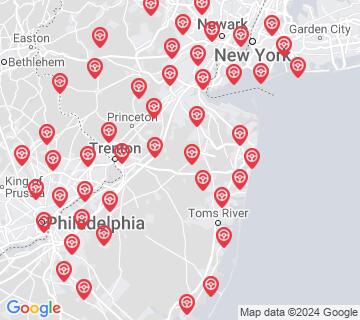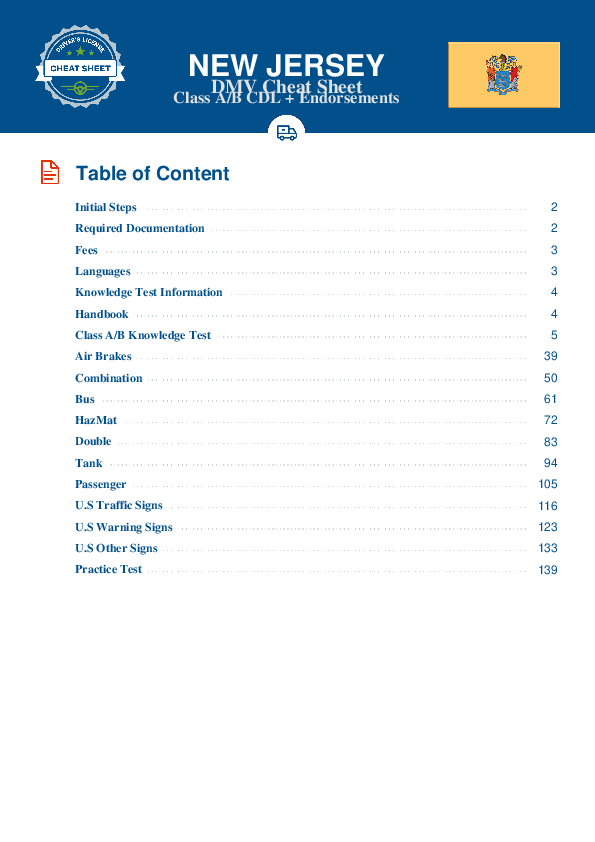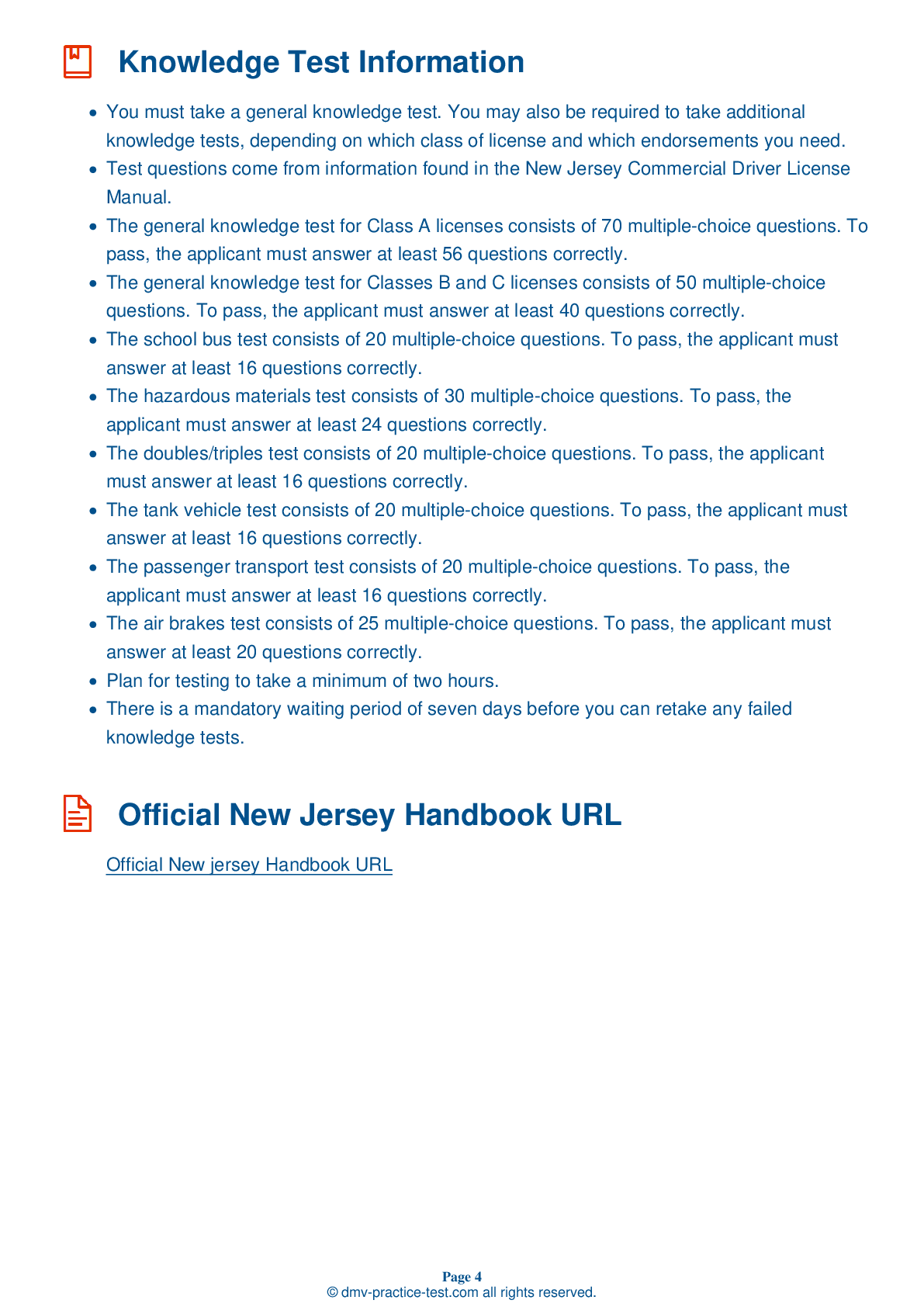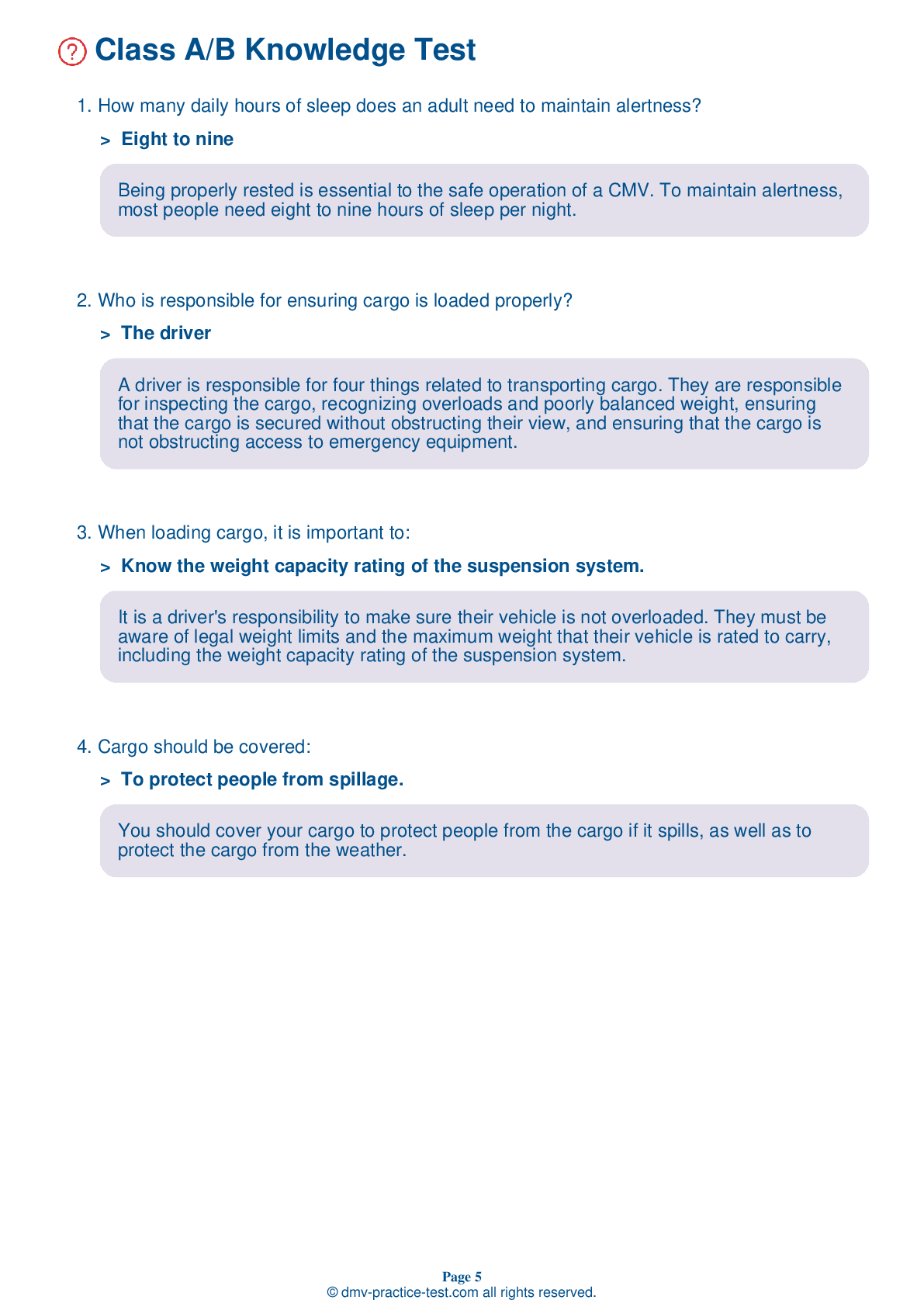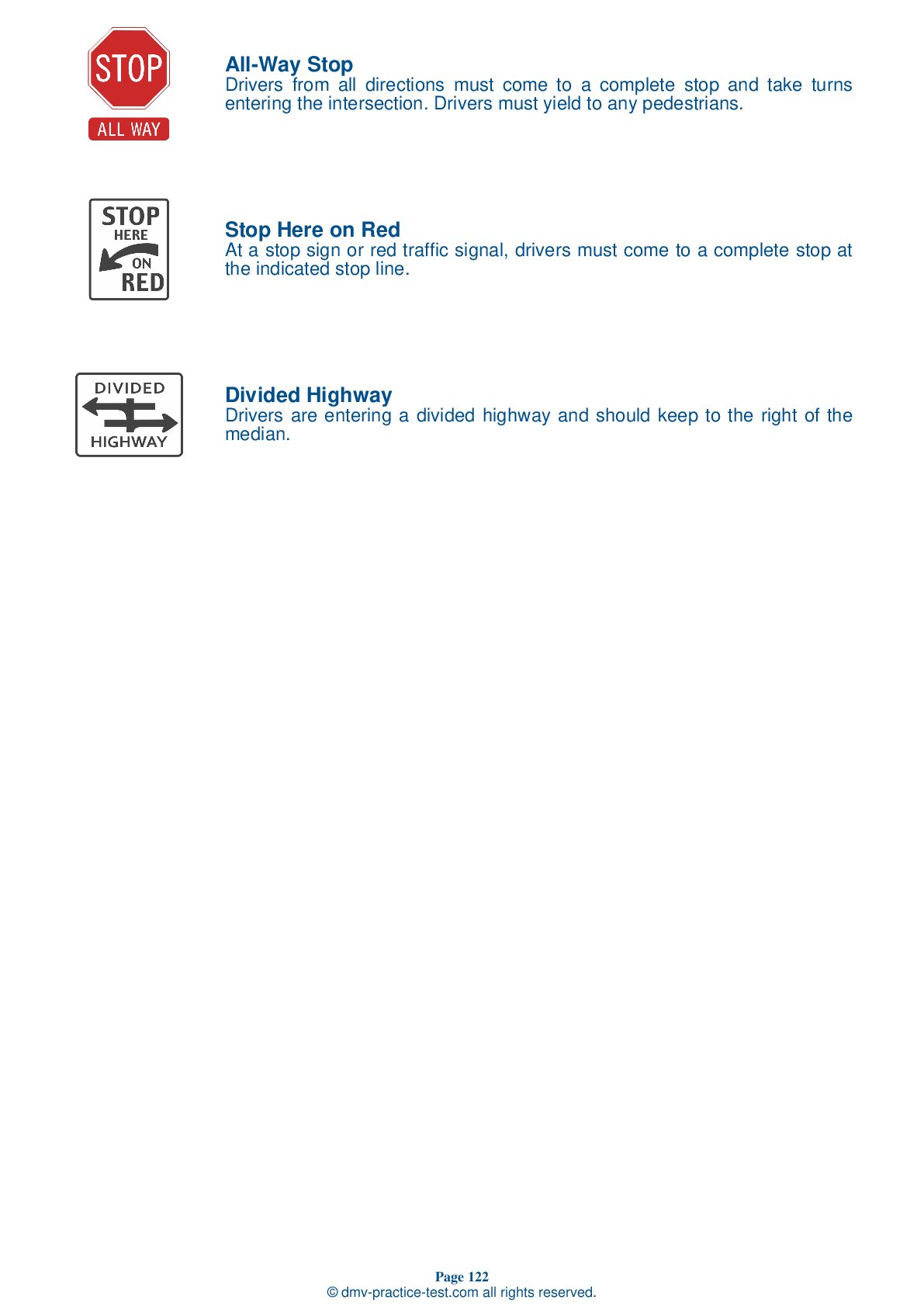Knowledge Test Class B #2
Class B Driving Test | New Jersey 2026 #2 Page 4 of 7
Train for FREE online with our New Jersey class B license test. The official exam test consists of several obligatory parts, with all of them checking your knowledge of different blocks of road rules. If you need to obtain a NJ CDL class B permit in 2026, practice as much as possible. Free sample tests published on our website will help you check and improve your knowledge and boost your grades. Please bear in mind that CDL class B requirements may vary from state to state.
50
40
20
22 . Cargo on flatbed trailers should be:
Pushed to one side.
On flatbed trailers and trailers without sides, cargo must be securely tied down to keep it from shifting or falling off in transit.
23 . To check the automatic transmission fluid level in some vehicles, the vehicle:
May have to be left running.
For some vehicles, you may need to leave the engine running to be able to check its automatic transmission fluid level.
24 . When inspecting underneath your vehicle for leaking fluids, you must look for all the following, except:
Windshield wiper fluid.
When approaching your vehicle before a trip, be sure to look underneath the vehicle for fresh oil, coolant, grease, or fuel leaks.
25 . A hand valve can be used to:
Load cargo.
If a tractor-trailer is equipped with a trailer brake hand valve, the hand valve can be applied to keep the vehicle from rolling backwards when the vehicle is started from a stop.
26 . If your truck or trailer catches fire, you should:
Park in an open area.
If there is a fire in your vehicle, the first thing you need to do is leave the road and stop. Park in an open area away from anything that could catch fire, such as plants or other vehicles. Do not pull into a service station.
27 . To stop in a vehicle that uses air brakes, the driver should:
Pull the brake pedal up.
To make a normal stop in a vehicle with air brakes, push the brake pedal down. The harder the pedal is pressed, the more air pressure is released.
28 . When conducting a vehicle inspection, you will need to identify all of the following, except:
The water compressor belt.
During the vehicle inspection test, you must check the power steering belt, water pump belt, alternator belt, and air compressor belt for snugness, cracks, or frays. If any of these components are not belt-driven, you must tell the examiner which one(s), and verify that they are operating properly, mounted securely, and not damaged or leaking.
Search the best driving school in your neighbourhood
2026 New Jersey | Frequently Asked Questions
A CDL Class A license in New Jersey is a commercial driver's license that allows the holder to operate any combination of vehicles with a Gross Combination Weight Rating (GCWR) of 26,001 pounds or more, provided the GVWR of the vehicle(s) being towed is in excess of 10,000 pounds. It includes tractor-trailers, truck and trailer combinations, and flatbeds.
A Class A CDL license in New Jersey allows operators to drive vehicles such as tractor-trailers, truck and trailer combinations, flatbeds, livestock carriers, and tank vehicles. It's also needed to operate any combination of vehicles with a Gross Combination Weight Rating (GCWR) of 26,001 lbs or more where the towed vehicle exceeds 10,000 lbs.
To obtain a Class A CDL license in New Jersey, you must be at least 18 years old (21 for interstate driving), have a valid driver's license, pass a vision test, and complete a medical examination. You'll also need to pass a knowledge test and skills test which includes a pre-trip vehicle inspection, basic vehicle controls, and on-road driving.
In New Jersey, you must be at least 18 years old to qualify for a Class A CDL license. However, to use it for interstate driving or to transport hazardous materials, you must be at least 21 years old. These age requirements are in place to ensure the safety of all road users.
Endorsements are not required for a Class A CDL license, but they allow you to operate specific types of vehicles or haul certain types of cargo. In New Jersey, endorsements include T (Double/Triple Trailers), P (Passenger), N (Tank Vehicles), H (Hazardous Materials), and S (School Bus). Each endorsement requires additional knowledge tests.
The Class A CDL skills test in New Jersey encompasses three parts: a pre-trip inspection to assess your ability to check the vehicle for safety issues, a basic controls test to evaluate your skills in controlling the vehicle, and a road test to confirm your ability to drive the vehicle safely in various traffic situations and conditions.
Yes, there are limitations for Class A CDL license holders in New Jersey. These may include restrictions based on medical conditions, failing certain parts of the skills test, or not meeting age requirements for interstate driving. Also, without specific endorsements, drivers may be restricted from operating certain types of commercial vehicles or transporting specific types of cargo.
Yes, in New Jersey, the written Class A CDL test is available in multiple languages, including Spanish. However, the Federal Motor Carrier Safety Administration requires that all commercial drivers demonstrate proficiency in English to read road signs, communicate with officials, and complete logs and other paperwork.
Yes, New Jersey Motor Vehicle Commission provides accommodations for individuals with disabilities taking the Class A CDL written test. You must submit a request for special testing accommodations. This may include extended time, a separate testing area, or assistance with reading the test. It's important to communicate your needs prior to scheduling your test.
If you don't pass the Class A CDL written test in New Jersey, you can retake it. However, you must wait at least 7 days before retaking the test. There's no limit to how many times you can retake the test, but each attempt requires a testing fee. Preparation and study are key to passing on your next attempt.
